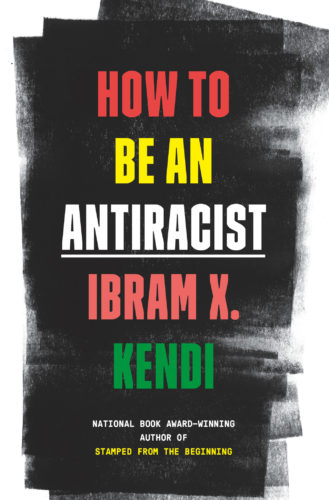Fighting Racism…Especially Where We Don’t Realize It Exists
Share
Explore Our Galleries
Breaking News!
Today's news and culture by Black and other reporters in the Black and mainstream media.
Ways to Support ABHM?
By Jeffrey C. Stewart, New York Times

Instead of focusing on our racist ideas, Ibram X. Kendi offers up a wrenching examination of the evolution of his.(Photo: Jeff Watts, NYT)
What do you do after you have written “Stamped From the Beginning,” an award-winning history of racist ideas that examined some of America’s most seemingly progressive intellectuals — Frederick Douglass, Susan B. Anthony, W. E. B. Du Bois — to expose what one reviewer called the “unwitting racism of the well-meaning.” If you’re Ibram X. Kendi, you craft another stunner of a book that is in some ways your previous work’s natural counterpart: “How to Be an Antiracist,” a 21st-century manual of racial ethics.
Kendi is on a mission to push those of us who believe we are not racists to become something else: antiracists, who support ideas and policies affirming that “the racial groups are equals in all their apparent differences — that there is nothing right or wrong with any racial group.” …
Instead of focusing on our racist ideas, Kendi offers up a wrenching examination of the evolution of his, beginning with a day in 2000 when he gave a prizewinning speech as a young student. “I remember the M.L.K. competition so fondly,” he writes. “But when I recall the racist speech I gave, I flush with shame.” …
 Kendi continues with chapters on power, culture, behavior, color, space and ethnicity, the last drawn from his experience as a professor moderating a class discussion between a West African and a group of mainly African-American students who expressed racist ideas about one another — stereotypes they had absorbed from white racist speech about both groups….
Kendi continues with chapters on power, culture, behavior, color, space and ethnicity, the last drawn from his experience as a professor moderating a class discussion between a West African and a group of mainly African-American students who expressed racist ideas about one another — stereotypes they had absorbed from white racist speech about both groups….
He shifts our attention away from people’s ethnic identities to the racist nature of their ideas and policies, and argues that these are the things on which we should judge a person. While acknowledging the reality of racism in contemporary life, Kendi wants to free us from using tainted ideas to stigmatize people and support policies that define others as inferior….
What emerges from these insights is the most courageous book to date on the problem of race in the Western mind, a confessional of self-examination that may, in fact, be our best chance to free ourselves from our national nightmare.
Read full book review here.
Read more Breaking News here.











Comments Are Welcome
Note: We moderate submissions in order to create a space for meaningful dialogue, a space where museum visitors – adults and youth –– can exchange informed, thoughtful, and relevant comments that add value to our exhibits.
Racial slurs, personal attacks, obscenity, profanity, and SHOUTING do not meet the above standard. Such comments are posted in the exhibit Hateful Speech. Commercial promotions, impersonations, and incoherent comments likewise fail to meet our goals, so will not be posted. Submissions longer than 120 words will be shortened.
See our full Comments Policy here.